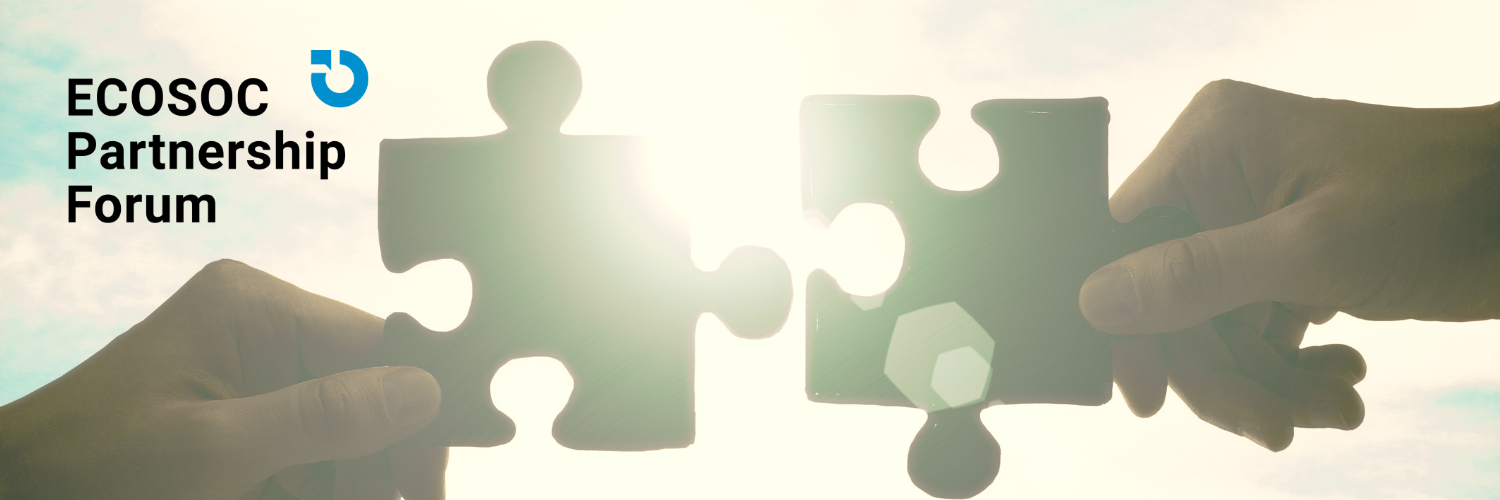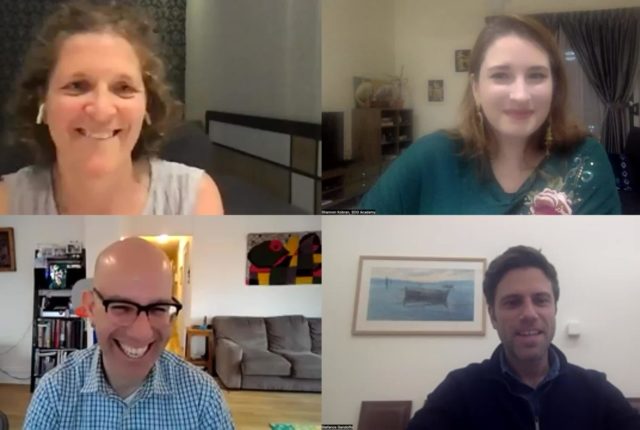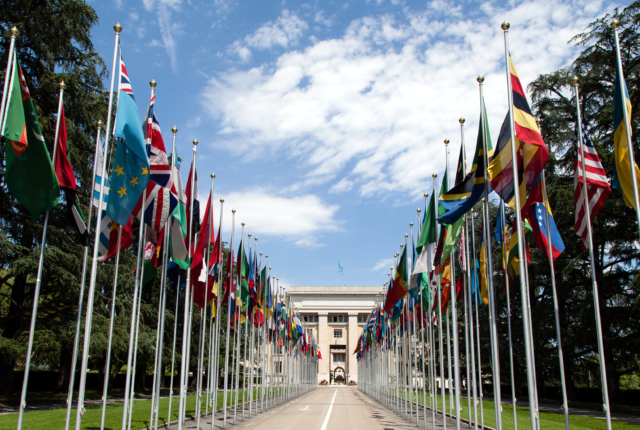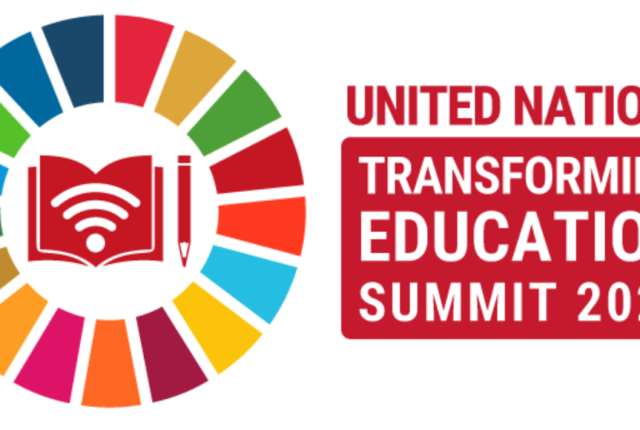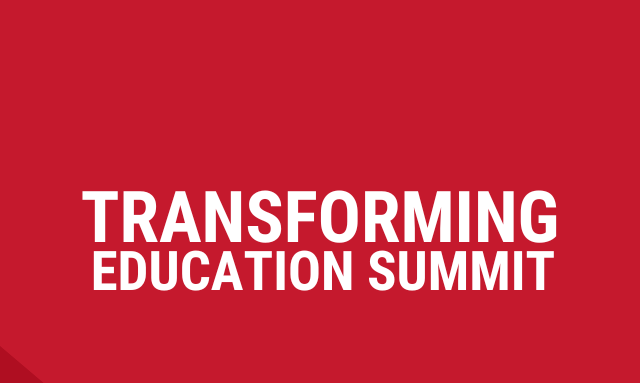The 2023 Partnership Forum of the Economic and Social Council (ECOSOC) was held on Tuesday, 31 January 2023 at the United Nations headquarters in New York.
Under the main theme of the 2023 ECOSOC and the High-level Political Forum on Sustainable Development (HLPF), “Accelerating the recovery from the coronavirus disease (COVID-19) and the full implementation of the 2030 Agenda for Sustainable Development at all levels,” the 2023 ECOSOC Partnership Forum hosted UN Member States and stakeholders – from civil society, the private sector, scientists, women, youth, local governments and many others – to discuss innovative efforts that are driving action on the UN Sustainable Development Goals (SDGs) and to highlight the contributions that partnerships can make in this regard.
Background on Spotlight Session 5
Moderator: Patrick Paul Walsh, VP of Education and Director of the SDG Academy, SDSN, & Member of the Multi-Stakeholder Advisory Group to the 2023 ECOSOC Partnership Forum
Speakers:
- Imme Scholz, Co-President, Heinrich Böll Foundation, & Co-chair, UN GSDR 2023
- Thanos Giannakopoulos, Chief, United Nations Dag Hammarskjöld Library & Information Management Section
- Jayashri Wyatt, Chief Education Outreach officer, UN Department of Global Communications, UN Academic Impact
- Brighton Kaoma, Global Director, SDSN Youth
Spotlight Session 5 highlighted the theme “Enhancing capacities for transformation: Building partnerships to harness science, technology and innovation.” Each organization brought a key issue to the table.
The 2023 UN Global Sustainable Development Report (GSDR) is being prepared by an Independent Group of Scientists appointed by the UN Secretary-General to allow a more effective SPI to accelerate action and overcome recent impediments that stand in the way of progress on sustainable development. This session outlines the table of contents for the 2023 UN GSDR to be presented at the SDG Summit, the mid-point review of the SDGs, during the General Assembly in September 2023.
The UN Library works to promote a global scientific knowledge commons as a key enabler for all stakeholders to implement the SDGs. In support of the latter, this session outlines the role of the UN Digital Library and UN Open Science Conferences since 2019.
UN Academic Impact outlines three key initiatives to populate the global commons and enhance SPI including a SDG Toolkit for HEIs, entry points for academia to contribute to UN Meetings, and the creation, in partnership with SDSN, of an “Overlay” of academic resources hosted in digital library repositories across the world that are oriented to the SDGs.
Finally, the session outlines the important role that youth can play in these initiatives, STI and SPI for the SDGs.
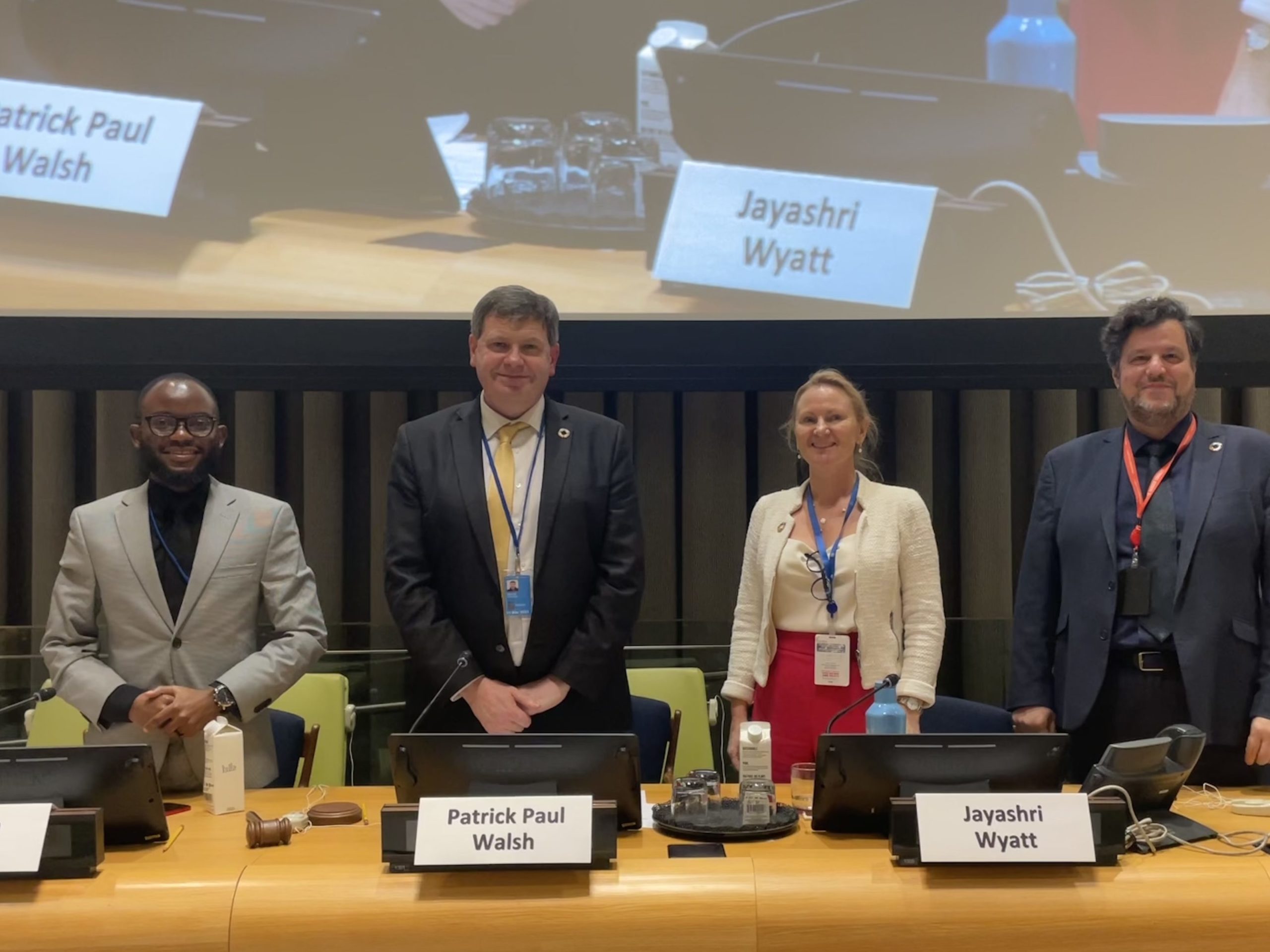
“No single person or institution can tackle global challenges single-handedly; If you want to go fast, go alone. If you want to go far, go together.”
Brighton Kaoma, SDSN Youth
Key issues discussed:
Imme Scholz reported that the UN GSDR 2023 will build on the 2019 GSDR the six entry points and four levers for change; Governance, Economy and finance, Individual and collective action, Science and technology, but adds a fifth lever capacity. Acceleration and enabling the transformations across all nations is critical. The time dynamics of transformation and implementation will be explicitly addressed. In particular, spillovers across nations and losers of transformational processes. Multilateral approaches will be needed to have well-resourced levers of transformational pathways across all nation states. This may need a Global Code of Conduct for SDG STI across nations and pledges from nations to cooperate.
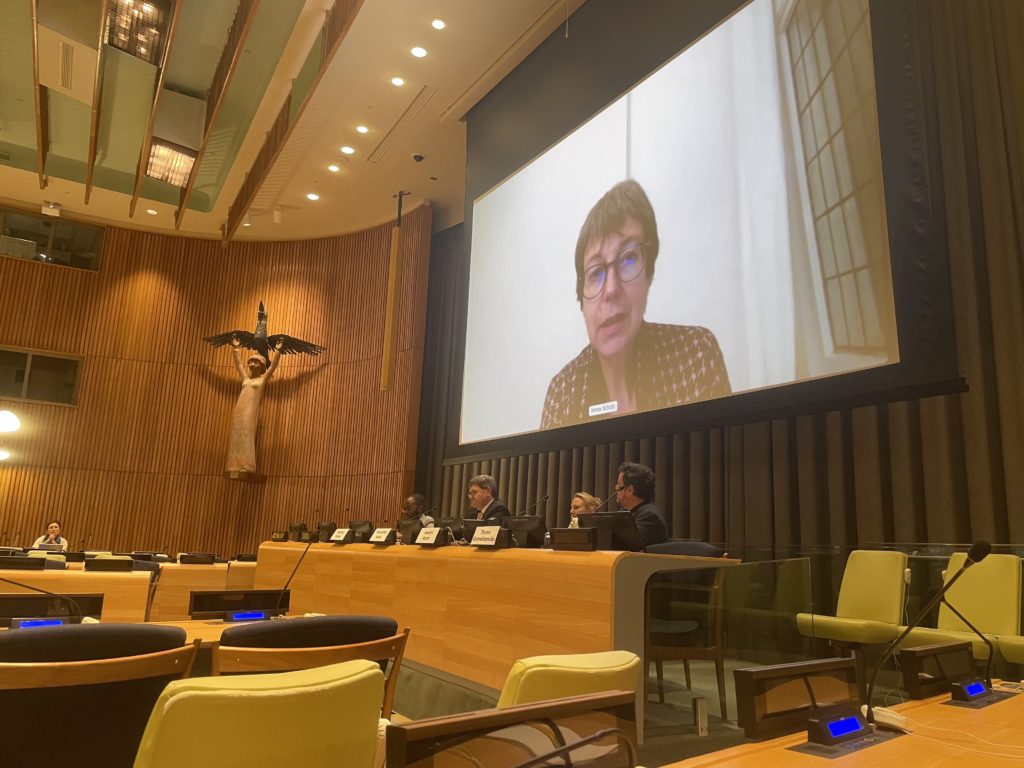
Thanos Giannakopoulos showcased the UN Library and the United Nations Knowledge Commons, a suite of programmes, networks and outreach actions initiated by the Libraries of the global United Nations Secretariat. The goal is to offer these resources to policymakers, UN staff, and citizens worldwide, contextualized and free of charge, through a network of interoperable repositories. The 3rd UN Open Science Conference will be held 8-10 February 2023.
Jayashri Wyatt represented UN Academic Impact and outlined three key initiatives to populate the global commons and enhance SPI. UN Academic Impact helps showcase how partnerships around higher education institutions can focus on open scientific cooperation across borders and build an open SDG Knowledge Commons that enhances science policy interfaces really at all levels of governance. Initiatives include a SDG Tool Kit, bringing academia to the table to connect directly with policymakers at UN meetings and a partnership with SDSN to create an “overlay” of repositories of curriculum and other multimedia resources that can be accessed in multi languages and repurposed for free.
Finally, Brighton Kaoma, SDSN Youth, outlined the important role that youth can play in these initiatives.There is an urgent need to close inequalities for young people evidenced by inconsistent funding for STI and less global representation of young women and girls in science, technology, engineering, and mathematics as well as ICT subjects and the exclusion of young people in state partnerships for science policy.
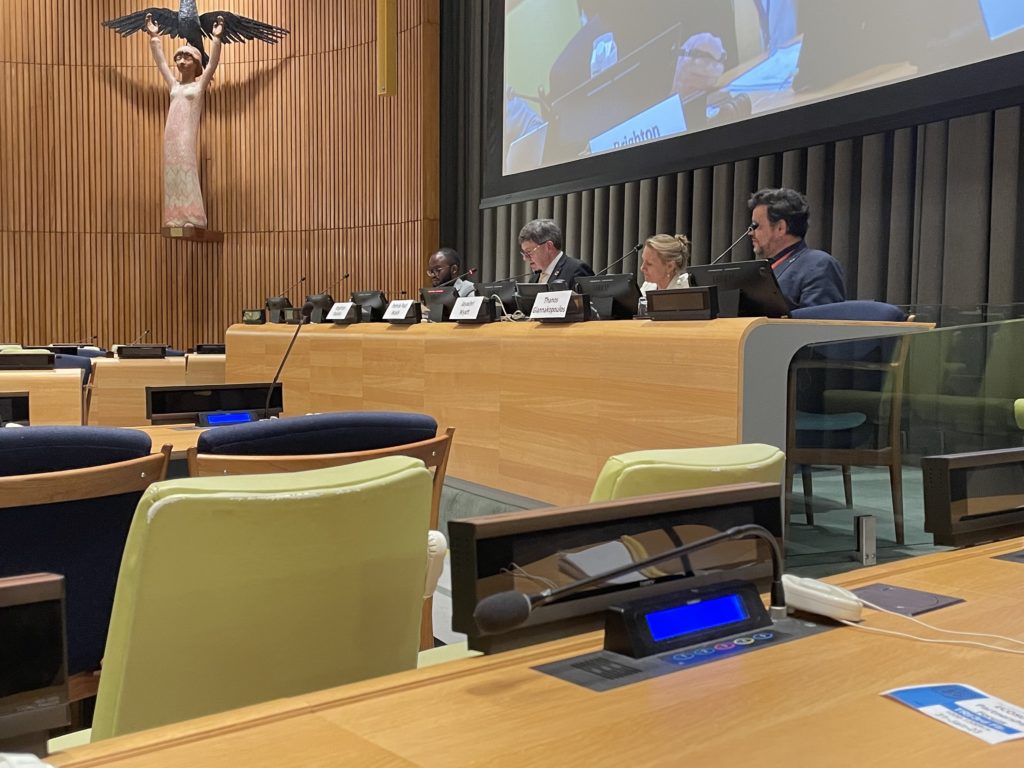
Key recommendations for action:
- The UN GSDR 2023 will receive feedback from missions and many presentations in the run up to the SDG Submit.
- An invite to join the 3rd UN Open Science Conference on 8-10 February 2023.
- Call to fund a UN AI and SDSN project to create an “overlay” of repositories of curriculum and other multimedia resources that can be accessed in multi languages and repurposed for free.
- Globally, we have 1.8 billion young people between 18-25 years of age. This equates to 1.8 essential leaders, communicators and innovators for partnerships. The UN office for youth will be an important vehicle for coordinating youth STI and SPI across the word for the SDGs.
